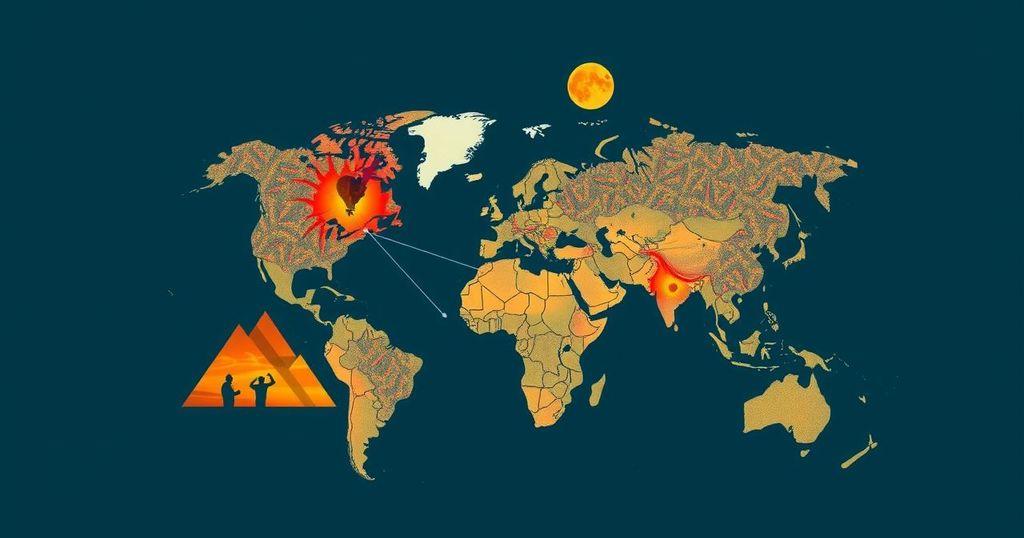United Nations Warns of Disinformation Threatening Climate Action Ahead of COP29

United Nations officials warn that the rise of disinformation on climate issues disrupts COP29 preparations, undermining science-based policy making. A new initiative is being formed to address various forms of misinformation, emphasizing the need for transparency and support for climate journalism. The impact on electoral politics further complicates the global fight against climate change.
Misleading and false information concerning climate science is proliferating on social media and has become a significant threat to the forthcoming COP29 climate negotiations, according to officials from the United Nations. Martina Donlon, leading the climate section of the U.N. Department of Global Communications, emphasized the urgent nature of this issue, noting that disinformation undermines scientifically informed decision-making. To combat this issue, an initiative involving multiple countries and organizations has been launched, addressing various forms of misinformation, including outright denial, greenwashing, and harassment of climate scientists.
The U.N. initiative was designed under the Global Digital Compact, which encourages nations to evaluate the impacts of misinformation on sustainability goals. Previous reports have shown that disinformation campaigns significantly hindered discussions at COP27 in Egypt, where they appeared to exaggerate the fossil fuel industry’s influence. Alex Murray, associated with climate watchdog groups, highlighted the adverse effects of disinformation on the climate information ecosystem, which has been compromised by campaigns from influential entities. These campaigns complicate the narrative around climate science and policy, often amplifying the voices of prominent figures promoting false claims.
Moreover, the prevalence of climate disinformation poses risks beyond hindering climate progress; it may even impact electoral processes. Researchers argue that misinformation can confuse the public and affect the outcomes of elections, leading to the selection of leaders hostile to international climate cooperation. Sean Buchan from Climate Action Against Disinformation warned that the disinformation exacerbates uncertainty and division during negotiations.
The situation calls for improved transparency in how social media platforms manage disinformation and better support for climate journalism. Experts advocate for robust media literacy initiatives and democratic regulation of online platforms to counter the dissemination of false narratives effectively. As noted by Buchan, mainstream outlets sometimes contribute to the problem by spreading misleading information, further complicating the global effort to combat climate change.
Initiatives aimed at addressing these issues have been gaining momentum since 2021, with key organizations acknowledging the adverse effects of misinformation on scientific consensus. Ultimately, comprehensive strategies are essential to restore trust in climate science and ensure that sound, factual information drives policy decisions.
The climate crisis is increasingly challenged by the rise of disinformation, particularly on social media platforms. This phenomenon affects climate policy discussions by undermining trust in scientific data and policies meant to address climate change. With major figures in tech and politics sometimes perpetuating false narratives, the international community has recognized the need to combat this issue through coordinated efforts involving multiple stakeholders, including governments and civil society organizations. The growing concern over the influence of disinformation on global climate negotiations necessitates urgent action to safeguard the integrity of climate-related discourse.
In summary, disinformation surrounding climate science poses a significant threat to international climate negotiations, as evidenced by recent statements from U.N. officials. The issue hampers effective policymaking and undermines trust in scientific consensus, while also influencing electoral outcomes that may derail global climate action. A concerted effort involving enhanced transparency, media literacy, and responsible journalism is imperative to combat climate misinformation and preserve the integrity of climate discussions.
Original Source: www.nationalobserver.com






